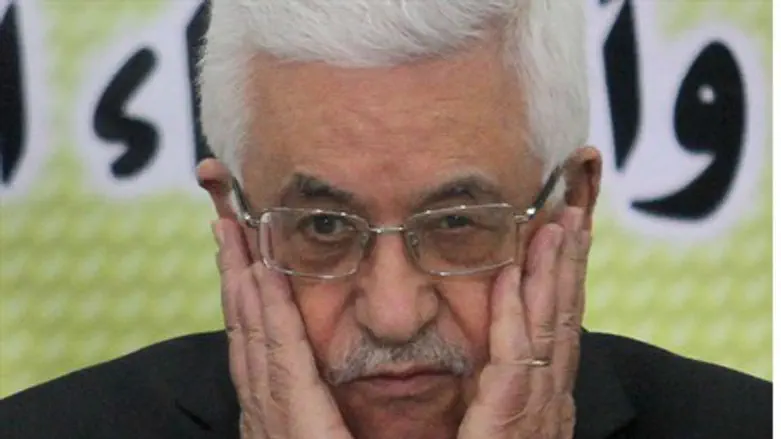
The unity government fraught with high tensions since being formed between Hamas and the leading Palestinian Authority (PA) faction Fatah last April appears to be closer then ever to a collapse, as the unity government cut contact with Hamas on Sunday.
PA unity government Labor Minister Mamoun Abu Shahla told the Palestinian Arab Ma'an News Agency on Sunday that the move has come as part of the fallout after a unity government delegation was allegedly held hostage in their hotel during a visit to Gaza last Monday.
The delegation, which had arrived on Sunday and left almost immediately after while charging Hamas with not allowing them to visit ministry headquarters to sort out a wage dispute, included eight unity government ministers.
According to Abu Shahla, "there has been no contact between the government and Hamas since the return of the ministerial delegation, which was unable to achieve its aims due to restrictions imposed by Hamas."
"The actions of Hamas during the delegation's visit will not go unnoticed and certainly there will be consequences," threatened the minister.
Abu Shahla warned that there is no reason to think the rapidly widening gaps between the PA and Hamas can be patched up, indicating that the growing tensions may be quickly leading Fatah and Hamas to the point of no return.
He added that unity government Prime Minister Rami Hamdallah's planned visit to Gaza this week will likely be cancelled amid the growing hostilities.
"Hamdallah was scheduled to visit Gaza tomorrow after returning from Indonesia, but there is currently no talk of the visit," said Abu Shahla, noting that future steps vis-a-vis Gaza are to be discussed during a government meeting next Tuesday.
Heading back to open warfare?
The latest brouhaha in Gaza revolves around a topic that has been a source of tension since PA chairman and Fatah head Mahmoud Abbas torpedoed peace talks with Israel last year by signing the unity agreement with Hamas - namely Hamas's demand that the unity government pay the wages of its employees.
Hamas wants payment for its 50,000 public workers, who were hired in 2007 when the organization violently seized control of Gaza after having resoundingly won in elections.
Those employees took the place of 70,000 PA employees in Gaza who continue to be paid by the PA, and who the unity government insists should return to their posts, with Hamas employees being retained "according to need." It has been estimated that the PA has avoided paying the Hamas salaries, fearing that paying the wages of members of an internationally recognized terrorist group may harm its own international funding.
After the incident last week with the delegation leaving Gaza early, Islamic Jihad spokesperson Daoud Shihab said the "crisis and the issue is bigger and deeper than the unity government."
The spokesperson of the Gaza-based terrorist group said the problem is that "each side interprets agreement based on personal and factional opinion."
Illustrating the depth of that "crisis" has been a series of assassination attempts and bombings targeting Fatah and Hamas officials both in Gaza as well as Judea and Samaria, in what appears to be a growing resurgence of violent conflict between the two factions.
As the tensions threaten to spill over again between Hamas and Fatah, a surprising Hamas victory at a student election at Birzeit University outside Ramallah last week, traditionally a stronghold of Fatah, indicates how the Gaza-based offshoot of the Muslim Brotherhood has strong backing even in the stomping ground of the PA seat of government in Samaria.
